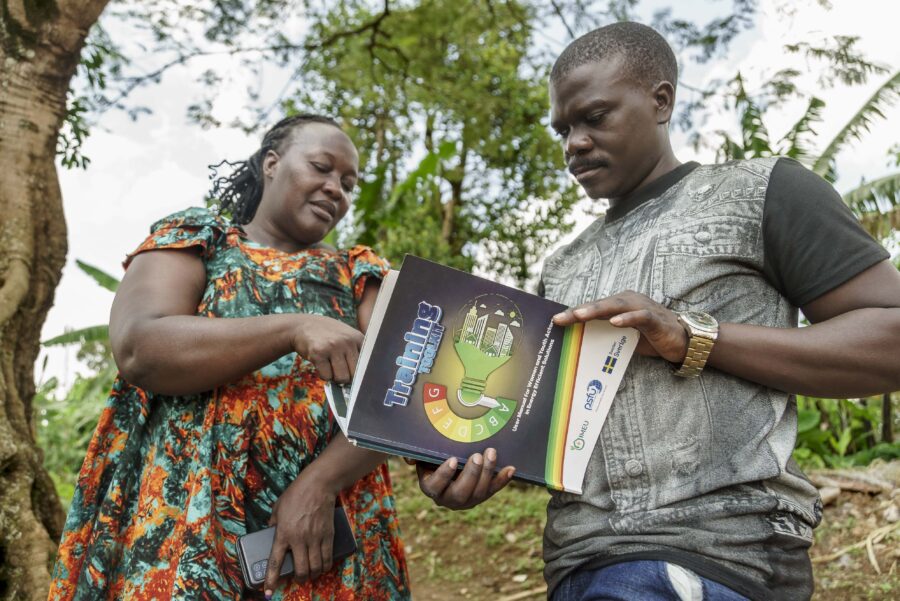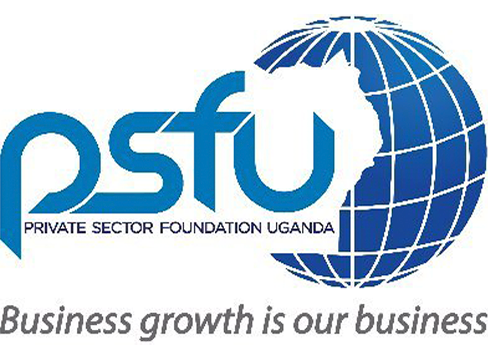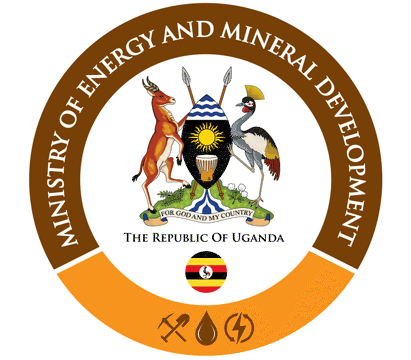BLOG: Powering Change: Local Ambassadors Driving Uganda's Energy Efficiency Transition
June 12, 2025

A study in Sub-Saharan Africa indicates that 15.4% of respondents consider energy efficiency when purchasing appliances. Limited awareness, perceived high-upfront costs and limited access to finance impede the uptake of energy-efficient technologies in Uganda. While the country has seen significant strides in electricity access, reaching 58% nationally by 2024, access to clean cooking solutions remains critically low at just 15%. This gap indicates many individuals and companies still do not have access to clean, energy-efficient (EE) alternatives. However, the Inclusive Markets for Energy Efficiency in Uganda (IMEU) project is working to bridge this gap.
Funded by the Embassy of Sweden, IMEU is a four-year project implemented by a consortium led by SNV, with support from Makerere University College of Engineering, Design, Art and Technology (CEDAT) and Private Sector Foundation Uganda (PSFU). IMEU’s mission is to contribute to developing sustainable and inclusive markets for appropriate energy-efficient products and services for households, businesses, and institutions in Uganda.
To achieve this, raising awareness about the benefits of energy efficiency is key. Through the Energy Efficiency Community Model strategy, the IMEU project trained over 500 women and youth as community ambassadors in energy-efficient (EE) technologies and practices. Serving as a conduit to create two-way conversations with communities, these ambassadors are spreading practical knowledge that encompasses everything from efficient power use to the benefits of using EE technologies such as the Electric Pressure Cookers (EPCS) and solar irrigation systems. Through their dedicated efforts and direct engagement, they are strengthening the "knowledge grid" within their communities, enabling wider access to and the adoption of energy-efficient products and services.
Bridging the Information Gap: Meet the Ambassadors
This information deficit is a key factor contributing to the slow clean energy transition in Uganda, where access to energy-efficient solutions remains a major hurdle. As of 2023, electricity access stands at around 57% nationally, and significantly lower rates in rural areas. This situation highlights the urgent need to build awareness in communities through local energy champions.

Meet Abdul Hakim Bukenya, an Energy Efficiency Ambassador based in Wakiso district in Central Kampala. Empowered through specialised training received from PSFU, Hakim rapidly became a fervent advocate for energy efficiency within his community, effectively spreading the "EE gospel" and demonstrating the benefits of new technologies across Uganda. "After the training, I have learned a lot compared to what I knew before," Hakim stated confidently.
PSFU strategically tapped into its extensive network of youth and women groups, including the Uganda Women Entrepreneurs Association Limited (UWEAL) and the Consortium for Enhancing University Responsiveness to Agribusiness Development (CURAD), to develop capacity through information dissemination training in the areas of implementation. Through targeted training, over 500 individuals, a significant 257 of whom were women, gained in-depth knowledge about the energy-efficient technologies available on the market and energy consumption patterns. However, the initiative went beyond simply imparting information; it led to the creation of a network of 90 dedicated Energy Efficiency Ambassadors across the country, armed with a specially developed training toolkit to facilitate their outreach.
However, as Hakim soon discovered, even the strongest initial enthusiasm for these innovations often encountered practical challenges. "'After training the people I was able to reach using the provided manuals, I encouraged them to join me in spreading this information to everyone in our communities,' he recounted. People had many questions, and we faced many challenges. For example, someone would ask, 'What do I do when it malfunctions or stops working?'" This recurring concern regarding the maintenance of technologies like Electric Pressure Cookers (EPCs) and the lack of local repair expertise became a significant hurdle to broader adoption and sustained trust.

Undeterred, Hakim proactively upskilled himself, dedicating time and effort to complete specialised training in the 'Repair and Maintenance of E-Cooking Appliances,' conducted by the Centre for Research in Energy and Energy Conservation (CREEC). This initiative transformed him from a mere messenger of energy efficiency into a reliable local technician. “I can now confidently assure my community that I can troubleshoot all issues. If your appliance, such as a pressure cooker, has issues, we can restore it to normal working condition. I am now a senior, a fully certified engineer."

Local ambassadors like Andrew Muhimbo are creating a ripple effect in their community in Western Uganda. ‘I discovered a range of innovative energy-efficient technologies that aren't typically available in local stores. We also gained valuable knowledge about energy consumption patterns throughout the day, including off-peak hours with lower tariffs. One technology that truly stood out to me was the Electronic Pressure Cooker (EPC), which I decided to get. My satisfaction with the EPC was contagious! When I enthusiastically shared its benefits, at least three other families became interested and have since acquired one. I'm confident they are also sharing their positive experiences with their circles.’
Putting women and youth leaders at the centre of the energy efficiency transition has proven to be a game-changer. These ambassadors are not just messengers; they are actively building trust, addressing practical challenges, and promoting a deeper understanding of the tangible benefits of energy-efficient technologies within their communities. This grassroots approach, rooted in local knowledge and driven by passionate individuals, offers a sustainable and impactful pathway to wider adoption, ultimately illuminating a brighter and more energy-secure future for Uganda, one community at a time.
By Denise Mpanga, Communications Officer, SNV in Uganda





